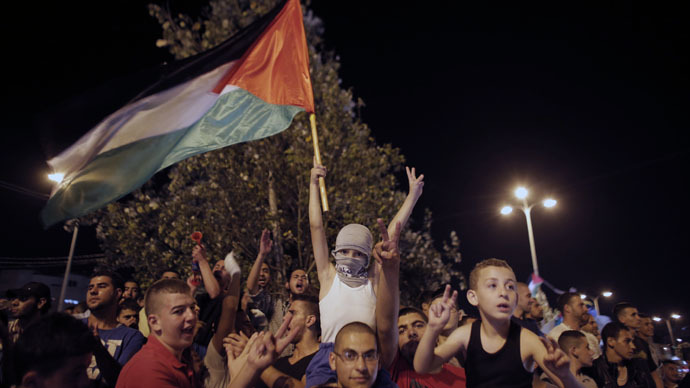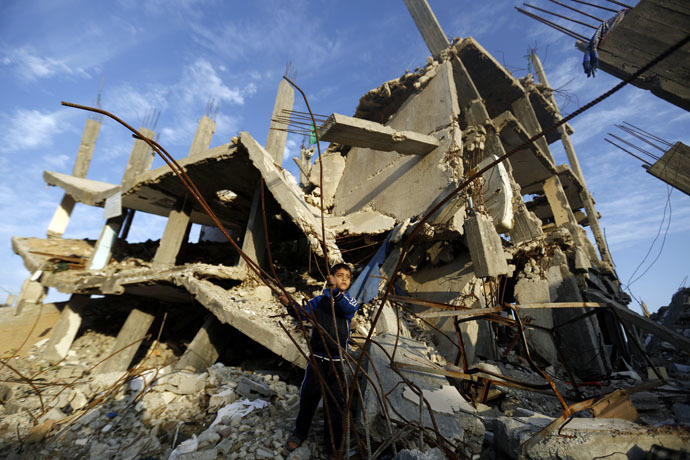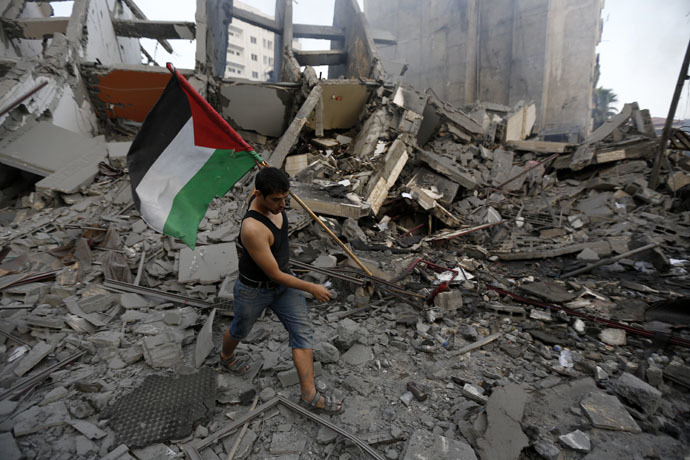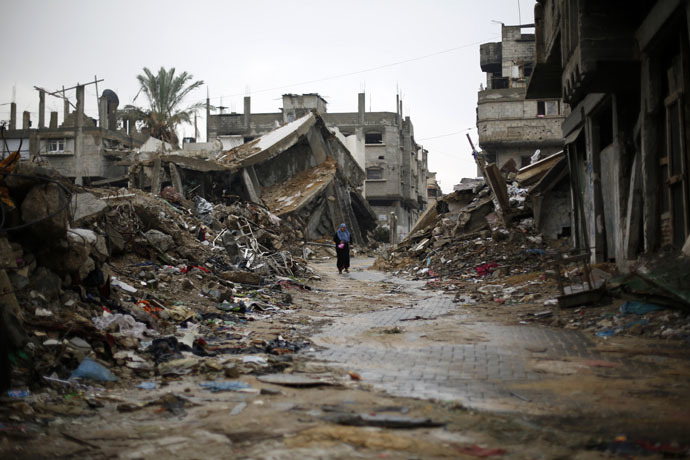Palestine ICC membership – end of limbo status?

Given the UN’s acceptance of Palestinian ratification of major international treaties, it’s difficult to see how Western countries can continue to hold out on recognizing the existence of a Palestinian State.
Unlike some of the United Nations’ more boisterous Secretary-Generals, the unprepossessing Ban Ki-moon has thus far come across as a touch too diplomatic, even for the world’s chief mediator. In fact, it seemed that Ban’s time as Secretary-General would be characterized by nothing more exciting than watching the international system slowly collapse around his ears.
But amidst that inexorable dissolution, the mild-mannered administrator delivered a shocking ray of light last week – he decided to accept the Palestinian Authority’s ratification of over a dozen major international treaties and conventions, including all of the cornerstones of modern international law, such as the Geneva Conventions, the Convention against Torture, and the Vienna Conventions on Diplomatic Relations and on the Law of Treaties. It is a highly significant move that would seem to be the final act in a sweeping reform to Palestine’s status under international law.
Generally speaking, only states can negotiate and contract with other states, become members of international organizations and possess standing to sue other states for wrongdoing. Because most Western countries have insisted that they will not recognize a Palestinian State until a comprehensive peace agreement between Israel and Palestine is reached, Palestine has been consigned to “entity” status and excluded from effectively engaging in these actions for over sixty years. In particular, Palestine has been largely precluded from utilizing the procedures of international law to resolve its outstanding issues with Israel. Thus, the negotiations between the two sides occurred without any effective legal constraints on what could be regarded as fair tactics. Imagine, if you will, “negotiating” the sale of a house or a car in a country without any courts or laws – there would be nothing to prevent either side from threatening, deceiving or even using violence against the other in an attempt to secure agreement to their own terms. And that, as we all know, is exactly the kind of thing that was happening in the Israel-Palestine conflict.
This now looks to have changed permanently. The first big development occurred when the UN’s General Assembly accorded Palestine non-Member Observer State status in late 2012. While the Security Council still refuses to accept Palestine as a UN member, it is hard to see how the General Assembly’s acknowledgement of it as a “State”, now combined with its membership in all of the major instruments of international law, which all speak of “States” and “States Party” in their texts, could still leave room to admit the possibility of Palestine not being a State. Holding out on denying Palestinian statehood is beginning to look not just vindictive, but downright obtuse.

The Secretary-General’s willingness to accept Palestine’s ratification of the bulk of the body of international law has to be seen against this backdrop. Allowing Palestine to sign up to these instruments is not merely an attempt to kick-start the old roadmap-to-nowhere negotiation process, as so assiduously reported elsewhere. By becoming a party to these treaties, Palestine acquires rights and duties that it did not previously possess, fundamentally shifting the balance of power, not just between itself and Israel, but between itself and the rest of the world. The State of Palestine acquires the ability to take action in its own name, and this will – again, contrary to many other reports – have real consequences, some of them potentially very good.
In particular, the Palestinian Authority has been most vocal about its wish for the International Criminal Court (ICC) to open investigations into possible war crimes committed by Israeli and Palestinian citizens during Operation Protective Edge, which was carried out by the Israeli Defense Forces in Gaza last summer. This is often misreported with a vaguely vengeful spin as a desire by the Palestinian Authority to “sue” Israel for war crimes. But the ICC is a criminal court: it does not try nations; it tries individuals. When it comes to acrimonious and long-standing conflicts, this is a great thing, because it allows justice to be done without punishing the uninvolved. There is no need to be permanently slapped into the same camp as someone else just because you share the same ethnicity or religion.
Of course, this has all been downplayed, with many commentators doubting whether any trials would ever occur before the ICC. Much has been made of the fact that Israeli PM Benjamin Netanyahu has already predictably announced that he will not extradite Israeli soldiers to the ICC under any circumstances. However, as the ICC is charged with trying “the most serious crimes of concern to the international community,” and this is further restricted by requirements that actions be committed as part of a plan or policy or on a large scale basis. The Court therefore generally only indicts individuals who have some controlling stake in a military or paramilitary organization. Thus, an ordinary Israeli soldier is unlikely to ever face ICC prosecution in the first place. As the person officially in charge of his country, Netanyahu himself is a far more likely target. And Netanyahu’s personal ideas of boundless Israeli exceptionalism, as well as his depressing tendency to play the well-depleted Holocaust card at every opportunity are by no means universally shared.
In fact, many Israeli human rights groups have worked tirelessly for reconciliation with Palestine, and Israel’s top courts have penned many a well-considered opinion attempting to straddle the difficult terrain of security and human rights that is in no way party to the unfortunate vehement political rhetoric so often expressed. Netanyahu may choose not to extradite himself or anyone else who may find themselves on the ICC’s radar, but that does not obligate future Israeli leaders to follow in his footsteps, or to refrain from taking their own internal domestic action at some future point. Failing that, once an ICC arrest warrant is hanging over your head, it tends to stay there and, especially when one lives in a country as small as Israel, and would thus be hard to view as of symbolic value only.

Given the salience of many of the Rome Statute’s enumerated crimes for events surrounding the Israel-Palestine conflict (attacks and reprisals against civilians, settlements, etc.), it is very difficult to see how or why the ICC’s Prosecutor would want to avoid investigation and equally difficult to see how once an investigation is started she would fail to find sufficient evidence to bring at least a few cases. Indeed, this is a huge chance for the Court to mend its reputation, which has suffered greatly from its inability to effectively investigate the wars in Afghanistan and Iraq and is increasingly viewed with skepticism from much of the developing world.
READ MORE: ICC & British war crimes: The trial of Tony Blair?
The chance to investigate Israel-Palestine from a criminal law perspective thus represents an opportunity to begin to repair much of the damage and acrimony that has engulfed both the region and the Court over the past decade. Far from provoking division, it could be a potentially very healing process.
Of course, the most interesting question in all of this is: why is it happening now? The Palestine-Israel conflict has been on the slow boil for over sixty years, so why the big shake-up?
Doubtless, the ham-fisted Operation Protective Edge touched a nerve. Not only did images of urban areas being bombed and thousands of civilian casualties shock public opinion, it prompted Palestine’s rival factions – Hamas and Fatah – to finally mend fences and present a unified front to the rest of the world. The seven years of strife that allowed for a divide-and-conquer strategy vis-à-vis Palestine are apparently over.
That, however, would not have sufficed unto itself. More significant is that Europe, especially Western Europe finally split away from the official American line that nothing can be done on Palestine that Israel does not agree to first. Palestine’s bid for statehood has found a sympathetic ear in Federica Mogherini, the EU’s High Representative for Foreign Affairs and Security Policy; Sweden has officially acknowledged Palestinian Statehood; and while parliaments do not themselves possess the power to confer recognition, several European parliaments have passed motions requesting their governments to do so in recent months: foremost Britain, Ireland, Spain, and France.

Given the deterioration in peace and security in the Middle East in general (including in Syria and Iraq), European politicians may see little point in letting an American administration that is unable or unwilling to undertake effective action in the region hold them back from giving their own strategy a try. It’s also possible that the Obama administration – known to have a fraught relationship with Netanyahu – is not completely averse to seeing some pressure from European allies come to bear on the Israeli leader. In any event, normalizing international relations and allowing States to firmly lock themselves into the web of international law is exactly the kind of “soft power” resolution that the EU tends to favor. In their view, this normalization is in everyone’s best interests, as Israelis would also benefit from the existence of an organized Palestinian State with a central authority that can be easily called to account.
Of course, it remains to be seen whether European nations will carry through on what they have started and offer financial support to Palestine over the next several years. Israel has frozen payment of over $127 million in tax revenues that it collects on behalf of the Palestinian Authority while the US has threatened to cancel $440 million worth of aid, clarifying that should Palestine launch action against Israeli citizens before the ICC, this will quickly become more than a threat. It is difficult to see how Palestine will hold out without some kind of material support. However, if European countries prove unwilling, it is still possible that other nations – Gulf States, or even the BRICS – might be willing to fill the gap. As long as Hamas and Fatah can maintain their amicable relations, the days of Palestine’s (and Palestinians) languishing limbo status will soon be coming to an end.
The statements, views and opinions expressed in this column are solely those of the author and do not necessarily represent those of RT.
The statements, views and opinions expressed in this column are solely those of the author and do not necessarily represent those of RT.













